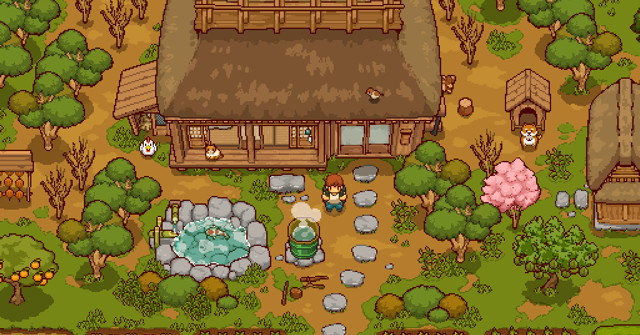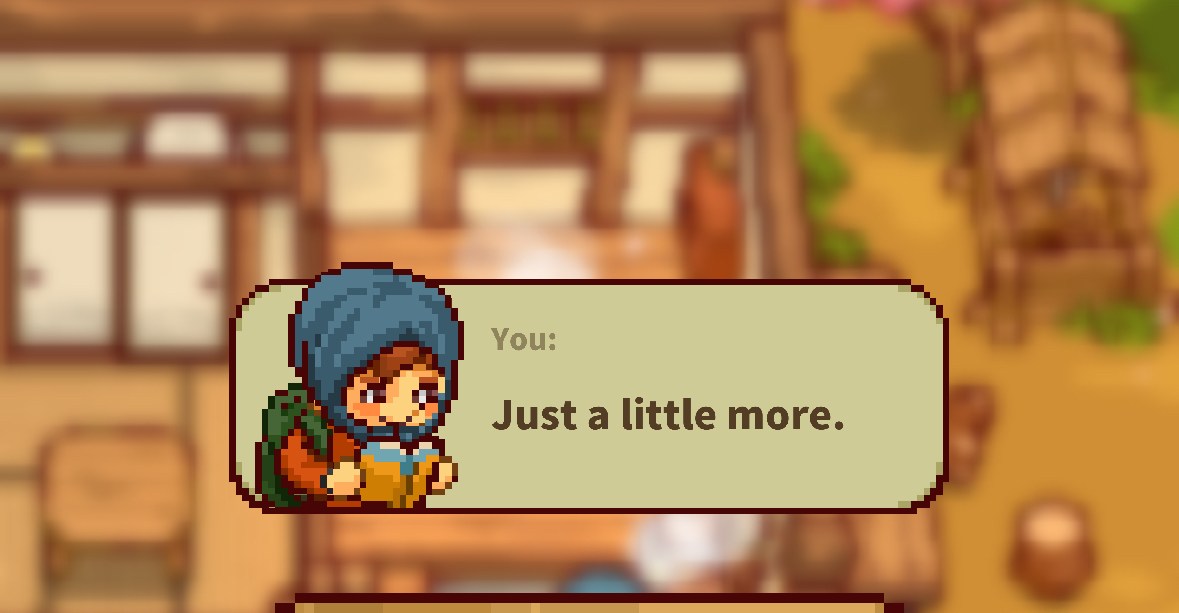Japanese Rural Life Adventure is exactly what it sounds like and more

Japanese Rural Life Adventure is what it says on the tin — it’s a 16-bit-style farming sim that takes place in the countryside, and it’s filled with hallmarks of the genre: You leave the city to arrive at a broken-down farm that you revitalize as you meet the townsfolk and become a part of their community. But this one doesn’t feel cramped or shortchanged on mobile. In fact, it’s designed for the medium.
Released on Apple Arcade on Sept. 15, 2023, Japanese Rural Life Adventure is not developer Game Start’s first foray into life sims nor pixel art — the studio is also responsible for Tiny Island Survival and Tiny Pixel Farm, both of which nail the nostalgic look.
“When developing a new game, we try to create pictures of various worlds using pixel art (for example, a deserted island, space, a museum, an amusement park, etc.),” Game Start founder Takeo Fujita said in an email interview. “When we drew ‘rural Japan,’ we thought ‘this will surely excite users,’ and uploaded the image to social media. The response was beyond our imagination, so we began full-scale development of a game with a ‘rural Japan’ motif.”

And that motif is extremely successful in the game — so much so that I’ve found myself searching for images of a real-life place that evokes the town in the game. It’s hilly and filled with relics of the past, like abandoned shrines and overgrown stone walls, and I can almost smell the petrichor of the foggy mornings on the mountainside. But according to Fujita, finding somewhere like this in real life is no easy feat.
“There is no electricity or gas infrastructure, and water is drawn from wells and rivers. It may be difficult to find a place like this in modern-day Japan,” Fujita said, clarifying that despite the rural nature of it, the game is set in the modern day. “An old folk house deep in the mountains, quietly left behind by the current of modernity. This is the setting of the game.”
Your aim in the game is not to bring more modernity, though — it’s simply to make the place more livable for you and the other people who live there. You’ll fix up a shrine, at which you can worship every day. You’ll buff the scratches and dirt out of a grumpy neighbor’s old car. You’ll work on your farm, growing food to cook and feed to your various pets.
The game includes the expected elements, like energy that wanes as you do tasks and gifts that increase your relationship standings with others. But those aren’t the focus of the gameplay. The motivation to keep playing lies in opening up new areas of the map — including the mystical realm that was just added in Oct. 17’s game update — and celebrating as many cultural moments as you can, some of which take the better part of an in-game year to prepare for.
Those cultural elements — like the recipes and the gosekku — shine a light on traditions old and new, religious and secular. For instance, in spring, you’ll engage in ohanami, which simply means to admire the blooming flowers. In winter, you’ll do the “big clean,” where you wash down your home in preparation for the new year.
“We also selected a balanced selection of traditional Japanese events that are held in each period — spring, summer, autumn, and winter. We also wanted players to get to know ‘Japanese food,’ so we developed a cooking mini-game,” Fujita said.

The cooking minigame is a joy to play, and fills the entire screen so you don’t have to squint to click on the right pot or bowl. Each minigame is well thought out, including fishing — optimized for touchscreens with a tap-to-reel mechanic.
Overall, the game is a pared-down version of a farming sim, but that doesn’t mean it lacks depth — it just means that instead of 28 days per month, there are two, and instead of endless missions, there are pointed quests that arise as you progress.
The daily quests could use some work, though. You can grab one of these per 24 real-time hours, but there’s no mechanic that reminds you to do them, nor any notification that you’ve failed when the time is up. Nonetheless, the game doesn’t really need those daily quests, as you could spend anywhere from two minutes to several hours playing Japanese Rural Life Adventure.
The Oct. 17 update, which throws players into a “mysterious world where spirits live,” isn’t the last that Game Start has planned.
“This year, and even next year, we will be adding new areas where you can experience Japanese culture and that are depicted in pixel art. We also would like to add as many requests as possible from players,” Fujita said.
So if you’re looking for a mobile-friendly (that’s portrait mode and landscape mode, commuters) farming sim that you can play for weeks on end, Japanese Rural Life Adventure won’t disappoint. I’ve kept up with my farm on and off for the year since the game was released and haven’t run out of new discoveries.
Japanese Rural Life Adventure was released Sept. 15, 2023, on iOS and Mac. The game was reviewed on an iPhone using an Apple Arcade subscription provided by Apple. Vox Media has affiliate partnerships. These do not influence editorial content, though Vox Media may earn commissions for products purchased via affiliate links. You can find additional information about Polygon’s ethics policy here.




